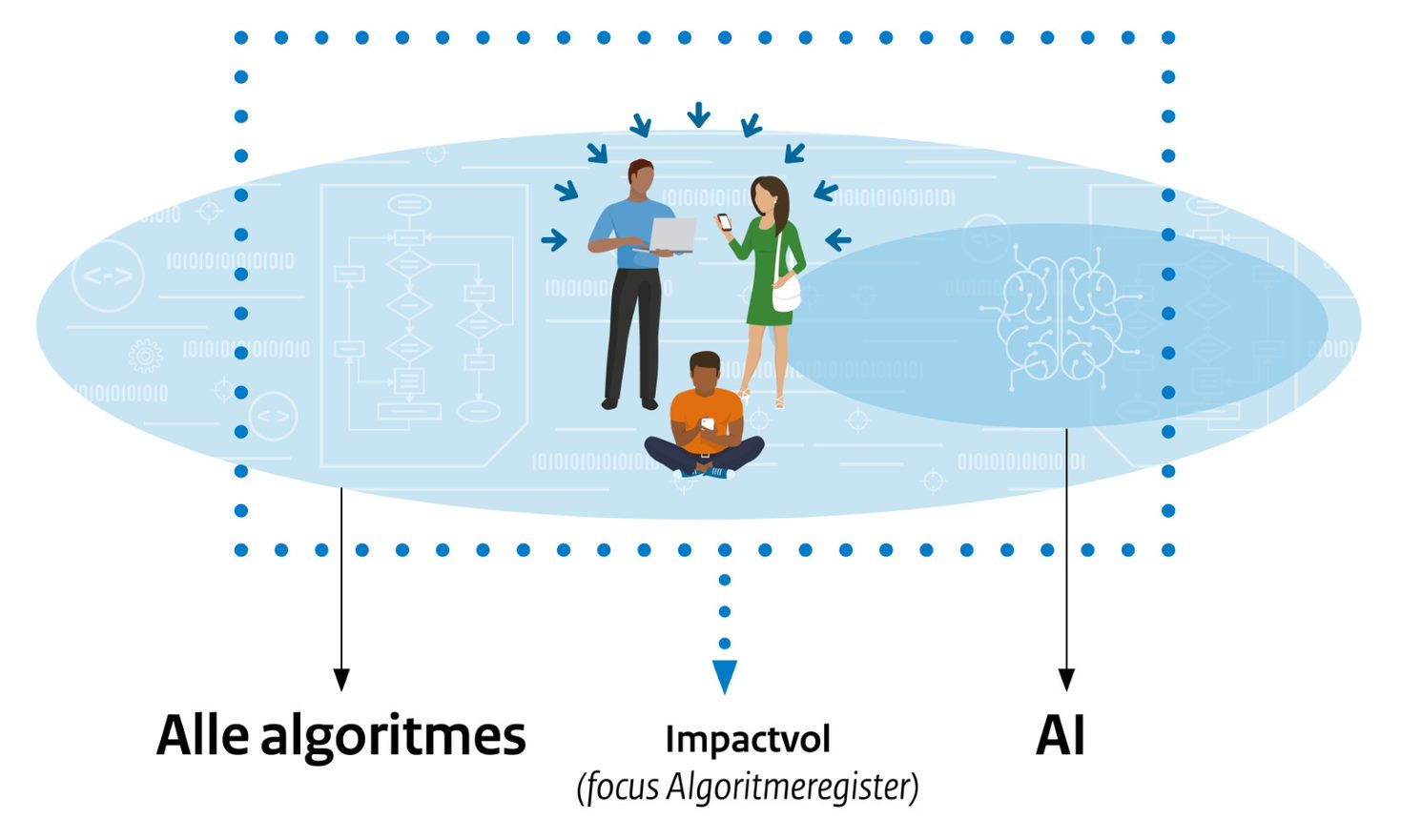About algorithms
An algorithm is a set of rules and instructions that a computer automatically follows when making calculations to solve a problem or answer a question (source: Netherlands Court of Audit). You come across algorithms everywhere, including in government.
Anyone who regularly does something on the internet comes across algorithms. Browsers, online banking, streaming services such as Netflix, and social media such as Facebook and Instagram; algorithms make it possible.
The government also uses algorithms. Consider applying for a grant online. The algorithm then helps to immediately assess whether you meet the conditions or not. This is an example of an algorithm with clear decision rules and an unequivocal answer: yes or no?
Other algorithms can recognize trends. For example, they show how crime develops in a city. This helps the police and municipality to take the right measures. Or they analyze (anonymous) health data, which can be used to make public health policy. Sometimes these algorithms are '(self) learning'. That is, they are trained to discover patterns themselves.
Impactful algorithms
Algorithms are not perfect. They sometimes make mistakes and there is a risk of prejudice, just like with humans. In the past, this has gone horribly wrong with automated government processes.
The government is working on improvement. It does this, for example, by developing and using algorithms in a responsible manner. It is important that the government is transparent about the impactful algorithms it uses. So that citizens and stakeholders have insight into algorithms that influence their lives. For example, algorithms that have legal consequences for people, or that ensure that the government classifies people, are full of impact. For example, identifying people who are entitled to certain provisions, so that the government can proactively offer help.
Visible and controllable
The Algorithm Register wants to make the impactful algorithms used visible and verifiable. So that you as a citizen, advocate, expert or journalist can watch. If you have any questions or think something is wrong with an algorithm in this register, you can contact the organization that manages the algorithm. Or: Read more about the Algorithm Register.
Relationship with AI
Artificial (or artificial) intelligence (AI) enables computers and machines to perform intelligent tasks. A well-known example of this is ChatGPT, a program that can answer the questions you ask it. Another example is AI that can help a doctor quickly detect different types of cancer.
Algorithms are an important part of AI, as they help computers and machines perform these tasks with mathematical formulas and patterns. AI can therefore discover connections and analyze images, for example. The relationship between AI and algorithms is as follows: AI consists of algorithms, but not all algorithms are part of AI. For example, the aforementioned non-self-learning algorithms are not AI systems, but you will find them in this register.
You can see this connection between AI and algorithms in the diagram below. Part of all algorithms – whether or not part of an AI system – are impactful.

This means two things. First, all AI is made up of algorithms, but a small fraction of algorithms are part of an AI system. Second, there is an overlap between impactful algorithms and AI. Some AI is impactful, some AI is not.
Legislation
The European Union has legislation specifically for AI: the AI Regulation. More about the relationship between the Algorithm Register and the AI Regulation.